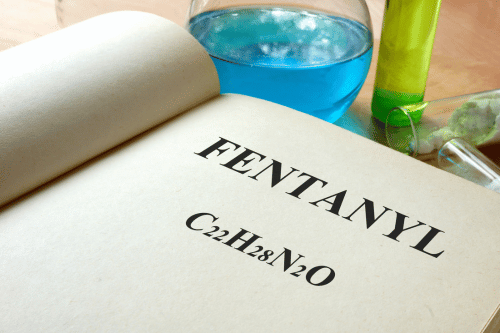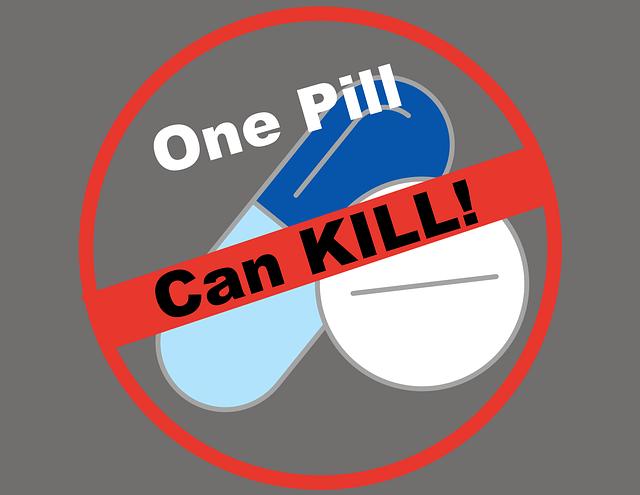

Fentanyl is one of the most potent synthetic opioids available, originally developed for severe pain management in controlled medical environments. However, its increasing misuse has led to a devastating rise in addiction cases and overdose deaths, posing a public health crisis of unprecedented proportions. The critical role of fentanyl rehab programs in addressing this epidemic cannot be overstated. These programs provide structured and comprehensive pathways to recovery for individuals battling the grips of fentanyl addiction. At Sullivan Recovery, we specialize in evidence-based fentanyl addiction treatment that includes detoxification, therapy options, and personalized recovery plans, offering a lifeline to those seeking to reclaim their lives.

Fentanyl addiction, a specific type of opioid addiction, stems from its powerful effects on the brain’s opioid receptors, which create an intense dependency that is difficult to overcome without professional assistance. Addiction often begins innocently enough, with prescribed fentanyl for managing severe pain, but can quickly spiral into dependency, particularly when individuals are exposed to illicitly manufactured fentanyl.
Recognizing the signs of fentanyl addiction early is key to seeking timely intervention and preventing life-threatening consequences. Common signs include:
Increased tolerance to fentanyl, requiring higher doses for the same effect.
Persistent cravings for the drug that disrupt daily life.
Withdrawal symptoms such as agitation, muscle aches, and nausea when not using.
Behavioral changes, including withdrawal from loved ones and secretive actions.
Physical symptoms like slowed breathing, extreme drowsiness, or confusion.
These signs are indicative of an opioid use disorder, which requires professional treatment.
Classified as a Schedule II drug due to its high potential for abuse, fentanyl’s danger lies not only in its potency but also in its frequent combination with other substances. The Drug Enforcement Administration (DEA) highlights that illicitly manufactured fentanyl is often mixed with drugs like heroin or sold as counterfeit pills, exponentially increasing overdose risks. Substance abuse involving fentanyl or other opioids can lead to devastating consequences, including:
Severe fentanyl withdrawal symptoms that make quitting difficult without medical support. These symptoms can resemble those of other opioids, often making individuals feel extremely ill, similar to having a bad case of the flu.
Fentanyl overdose, which can result in respiratory depression and death.
Long-term health complications, both physical and mental.
Fatal outcomes, with overdose deaths reaching alarming levels globally.

Fentanyl rehab is a structured fentanyl addiction treatment program specifically designed to help individuals overcome fentanyl addiction. These programs integrate medical, psychological, and emotional support, addressing every facet of addiction to foster holistic recovery.
Fentanyl rehab typically includes several essential elements:
Medical Detox: Supervised by healthcare professionals, detox helps manage withdrawal symptoms safely.
Behavioral Therapies: Therapies such as cognitive-behavioral therapy (CBT) identify the root causes of addiction and provide strategies to prevent relapse.
Medication-Assisted Treatment (MAT): FDA-approved medications, including buprenorphine and naloxone, reduce cravings and withdrawal effects.
Supportive Environment: Rehab programs create a safe and encouraging atmosphere where individuals can focus on recovery without external pressures.
Comprehensive Aftercare: Long-term planning, including follow-up appointments and support groups, ensures sustained recovery.
Quitting fentanyl without professional intervention can be dangerous due to the severity of substance use disorder, especially considering the withdrawal symptoms and high risk of relapse. At Sullivan Recovery, our addiction treatment programs are medically reviewed and meticulously tailored to each patient’s unique needs. This personalized approach ensures effective treatment and increases the likelihood of long-term recovery.

Sullivan Recovery provides a wide range of treatment options designed to meet the diverse needs of individuals struggling with opioid use disorders, including fentanyl addiction:
Inpatient rehab offers 24/7 care in a structured environment, ensuring continuous support and supervision for those with severe addiction.
Outpatient rehab is a flexible option that allows individuals to receive treatment while maintaining daily responsibilities. It is ideal for those with mild addiction or as a step-down from inpatient care.
Many individuals with fentanyl addiction also struggle with co-occurring mental disorders. Dual diagnosis treatment addresses both issues simultaneously for a more comprehensive recovery.
Our care plans integrate behavioral therapies, MAT, and emotional support to comprehensively address substance use disorders. This approach ensures that every aspect of addiction is addressed, from physical dependence to emotional well-being.
Recovery from fentanyl addiction, a potent synthetic opioid, is a lifelong journey that requires commitment, support, and professional guidance. At Sullivan Recovery, we believe that a strong support system and individualized care are the cornerstones of sustained recovery.
Relapse prevention is a critical component of long-term recovery. Our approach includes:
Coping Mechanisms: Teaching patients to manage triggers and stressors effectively.
Ongoing Support: Providing regular follow-ups, counseling, and support group connections.
Building Community: Encouraging relationships that foster accountability and encouragement.
Fentanyl addiction is a complex issue, but recovery is possible with the right help. Sullivan Recovery offers a compassionate and comprehensive approach to fentanyl rehab, providing patients with the tools and support they need to reclaim their lives. From medical detox to relapse prevention, our programs are designed to ensure long-term recovery.
If you or someone you know is struggling with fentanyl addiction, don’t wait to seek help. Contact Sullivan Recovery to learn more about our fentanyl rehab programs and start the journey to a healthier, drug-free life. Your path to recovery begins here.

At Sullivan Recovery, as an in-network provider we work with most insurance plans, such as:
And More
If you or a loved one are struggling with mental health challenges or substance abuse, reach out to Sullivan Recovery today. Our team of compassionate professionals is here to support your journey towards lasting well-being. Give us a call at 949-836-7180.
While recovery rates vary, Sullivan Recovery’s evidence-based methods significantly improve the likelihood of achieving and maintaining sobriety. Factors like program adherence, support systems, and individualized care influence outcomes.
Efforts to combat fentanyl include public education campaigns, stricter regulations on opioid prescriptions, and increased access to naloxone for overdose reversal. Treatment programs like ours play a vital role by addressing the root causes of addiction.
Naloxone, a life-saving medication, is widely used to reverse the effects of fentanyl overdose. Available as a nasal spray, it can quickly restore normal breathing in overdose cases.
Fentanyl’s detectability depends on the testing method but typically remains in the body for up to 72 hours. Its powerful effects, however, may linger longer in chronic drug abuse users.